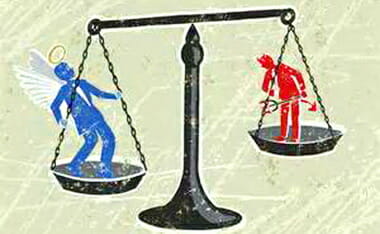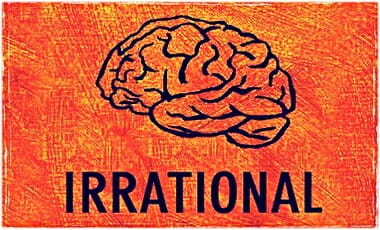(There are really two “apologetics” [streams of arguments] below. The first is a refutation of Chimp/Human similarities; the second is a dealing with the underlying presuppositions and the self-defeating aspects of them [Jump To This]. And this post spawned a “SISTER POST” of sorts. Enjoy.)
UPDATED MEDIA
TIMELINE CHAPTERS
Here I want to offer a somewhat short refutation [NOT] of the perpetual myth about human and chimpanzee DNA being 99% similar. One friend included it in a comment to me:
- A cat shares 85 percent of our DNA along with dogs. Plants 15-20 percent . We share 90% of the genome with a banana. Chimpanzees 99% nearly…
Here is my short response:
Not only that, but your idea of 99% is not a real stat as well. Many things have changed since that 1975 claim.* One example is that junk DNA is roundly refuted, and 2001 and 2005 Nature and Science Journal articles make clear that we share from 81% to 87% of DNA with chimps. That shouldn’t be a surprise since we both have eyes to see, stomachs to digest food, etc. So again, when I see you make claims above, rarely are they rooted in anything either current or true. * (CREATION.COM) The original 1% claim goes back to 1975.2 This was a long time before a direct comparison of the individual ‘letters’ (base pairs) of human and chimp DNA was possible—the first draft of the human DNA was not published until 2001 and for the chimp it was 2005. The 1975 figure came from crude comparisons of very limited stretches of human and chimp DNA that had been pre-selected for similarity. The chimp and human DNA strands were then checked for how much they stuck to each other—a method called DNA hybridization. (2. Cohen, J., Relative differences: the myth of 1%, Science 316(5833):1836, 2007; doi: 10.1126/science.316.5833.1836)
Even a recent 2006 TIME article continues the mantra when they say, “Scientists figured out decades ago that chimps are our nearest evolutionary cousins, roughly 98% to 99% identical to humans at the genetic level.” So while science moves on and corrects itself, our culture is stuck in what was said to be a proof, and reject what ACTUALLY an evidence against the evolutionary proposition. Similar refutations of evolutionary positions that Richard Dawkins and “Junk DNA.”
What do I mean by that? I mean that if something is said to be evidence and is used to promote [FOR] the evolutionary paradigm… and then it is shown not to be the case… wouldn’t it then logically be an evidence AGAINST this said paradigm? I think so.
MOVING ON… SORTA
Before zeroing in on the Chimp issue, one other quick note regarding a recent discovery that undermines this “similarity” idea. That is this study:
PJ MEDIA notes:
A study published in the journal Human Evolution is causing quite the stir. In the words of Phys.org, “The study’s most startling result, perhaps, is that nine out of 10 species on Earth today, including humans, came into being 100,000 to 200,000 years ago.”
So startling, in fact, that according to David Thaler, one of the lead authors of the study, “This conclusion is very surprising, and I fought against it as hard as I could.”
The study’s very own author was so disturbed by how the conclusions challenged current scientific dogma that he “fought against it as hard as [he] could.” His “fight” gives credence to the study’s conclusions. His eventual acceptance, not to mention publication, of the conclusions speaks well of Thaler’s commitment to being a scientist first and an ideologue second.
[….]
This is no small matter for evolutionists because, as World Magazine helpfully summarizes:
According to traditional evolutionary thinking, all living things on Earth share common ancestry, with species evolving through a slow process of random mutation, natural selection, and adaptation over roughly 3.8 billion years. The idea that humans and most animals suddenly appeared at the same time a mere 200,000 years ago or less does not fit with that model.
(See more from my post, “Major DNA Study Undermines Evolution ‘In A Big Way’“) Obviously we differ on time-scales… but it sure seems like they are getting closer to mine over said time. But if one wishes to keep it ecumenical, here is a quote I love:
- “While thoughtful investigators may disagree about the precise age of the universe, we can be confident about its finite nature”
>> J Warner Wallace, God’s Crime Scene: A Cold-case Detective Examines the Evidence for a Divinely Created Universe (Colorado Springs, CO: David C. Cook, 2015), 37.
Okay, back to the refutation of the 99% similarity. Here, Dr. Thomas Seiler, Ph.D., Physics, Technical University of Munich refutes compelingly this outdated TIME magazine article… and my friend:
…Most of you may have heard the statement that chimpanzees and humans are having 99% of their genes in common. However, what you are usually not told is that this result was not based on comparing the entire DNA of man and ape but only on comparing a very small fraction of it (ca. 3 %). The function of the other 97% of the genetic code was not understood. Therefore, it was concluded that this DNA had no function at all and it was considered “leftover junk from evolution” and not taken into consideration for the comparison between man and ape. Meanwhile, modern genetics has demonstrated for almost the entire DNA that there is functionality in every genetic letter. And this has led to the collapse of the claim that man and chimpanzee have 99% of their DNA in common.
In 2007, the leading scientific journal Science therefore called the suggested 1% difference “a myth.” And from a publication in Nature in 2010 comparing the genes of our so-called Y-chromosome with those of the chimpanzee Y-chromosome we know now that 60% of human Y-chromosome is not contained in that of the chimpanzee. This represents a difference of one billion genetic letters, known as nucleotides.
And modern genetics has recently made another important discovery which was very unexpected. Researchers found that all of the different groups of humans on earth, wherever they live and whatever they look like, have 99.9% of their genes in common. This leads to a problem for the hypothesis of evolution because if humans really were descended from the apes, then how could it be that we only have 40% of our Y-chromosome in common with the apes but at the same time there is almost a complete genetic identity among all humans? If there had been an evolution from ape to man then it should still go on among men and reveal significant genetic differences. These recent discoveries therefore drastically widen the gap between man and the animals. And they confirm that there are in reality no such things as human “races”. Asians, Europeans, Africans and Indigenous people from America and Australia only have superficial differences like color of skin or shape of the nose but they are all extremely similar on the genetic level.
And these recent breakthrough discoveries even go further. Today, because of the extreme similarity of the human genome, it is considered a well-established fact among geneticists, that all humans living on earth now are descended from one single man and from one single woman. In order to convince yourself of this you only have to search in the internet for the terms “mitochondrial Eve” or “Y-chromosome Adam”. These names were given by evolutionists in an ironic sense but now many regret that choice of name because this discovery perfectly confirms the Catholic Doctrine of Creation which has taught for 2000 years that all humans are brothers and sisters descended from one single human couple, the real historical persons Adam and Eve, not from a multitude of subhuman primates….
(Via LIFE SITE NEWS)
Here is a visual of the varying studies (click to enlarge in another window):
This video evaluates the claim that humans and chimps have 98% to 99% DNA similarity.
DR. JONATHAN SARFATI passed this on to me in conversation (click to enlarge):
Wow. Enough said? Or will this myth still infect the brains of people wishing something to be true that continue to lose evidences for? One other noteworthy exchange from that conversation I wish to note here.
Switching Gears
My friend said many things, which is convenient… many skeptics of young earth creationism or Christianity for that matter have paragraphs of bumper sticker [what they think are] facts strung together… like a lullaby to prove to themselves they are right. (What they ironically they call the GISH GALLOP [“it’s far easier to raise numerous unsubstantiated points than it is to refute them properly”] in referring to us.) Which is why I like to stop, and discuss one issue at a time. Which the above is.
When you do that, rarely does the position of the skeptic hold water.
Here is what my friend said:
- I also see damage being done to children when you teach them things that are scientifically inaccurate. The earth is not 10000 years old…
To which Jonathan Sarfati responded (and reminded me of a larger quote I got from his commentary of Genesis I will post at the end):
ATHEOPATHS: in an evolutionary universe, concepts like “good” and “evil” are just illusions of our brains conditioned by millions of years of Darwinian evolution.
Also ATHEOPATHS: Christianity is evil child abuse.
While the main driver of the topic is a PSYCHOLOGY TODAY article that posits Christianity is harmful to children — just Christianity mind you…
It is a form a Christophobia – a fear of anything related to Christianity/Christ, A bias against one “particular” religious expression. A word I used in one of my first “conversation series” posts on my old blog (November of 2006): “theophobia” – a fear of “the belief in one God as the creator and ruler of the universe”.
… is telling. The point that Doc Sarfati makes is Yuuuge. That is,
- skeptics of the Faith like to use moral positions to refute the absolute morality of Christianity, or a position they attribute truth to and expect others to grasp said truth as, well, true — is not in fact the case if their worldview is reality. They pay no attention to the underlying aspect of where these laws or stated facts are reasoned from — mind or matter.
While the whole conversation is a bit drawn out, a refuting principle I used in it which is the same principle Dr. Sarfati taps into (i.e., the Laws of Logic), is this quote by J.B.S. Haldane
- “If my mental processes are determined wholly by the motions of atoms in my brain, I have no reason to suppose that my beliefs are true…and hence I have no reason for supposing my brain to be composed of atoms.”
It is the same as this reflection by Stephen Hawkings noted by Ravi Zacharias:
One of the most intriguing aspects mentioned by Ravi Zacharias of a lecture he attended entitled “Determinism – Is Man a Slave or the Master of His Fate,” given by Stephen Hawking, who is the Lucasian Professor of Mathematics at Cambridge, Isaac Newton’s chair, was this admission by Dr. Hawking’s, was Hawking’s admission that if “we are the random products of chance, and hence, not free, or whether God had designed these laws within which we are free.”[1] In other words, do we have the ability to make choices, or do we simply follow a chemical reaction induced by millions of mutational collisions of free atoms? Michael Polyni mentions that this “reduction of the world to its atomic elements acting blindly in terms of equilibrations of forces,” a belief that has prevailed “since the birth of modern science, has made any sort of teleological [a reason or explanation for something in function of its end, purpose, or goal] view of the cosmos seem unscientific…. [to] the contemporary mind.”[2]
[1] Ravi Zacharias, The Real Face of Atheism (Grand Rapids, MI: Baker Books, 2004), 118, 119.
[2] Michael Polanyi and Harry Prosch, Meaning (Chicago, IL: Chicago university Press, 1977), 162.
John Cleese explains the above in a Monty Python view for the layman:
Here is Ravi again, but this time at a Q&A at Yale being challenged by a graduate student:
To be clear, my friend has no idea that what he has said is internally self-refuting. To show this working out with yet another skeptic of the Faith, here is apologist Frank Turek dispensing in similar fashion to Jonathan Sarfati (see below), Daniel Dennet:
Atheist Daniel Dennett, for example, asserts that consciousness is an illusion. (One wonders if Dennett was conscious when he said that!) His claim is not only superstitious, it’s logically indefensible. In order to detect an illusion, you’d have to be able to see what’s real. Just like you need to wake up to know that a dream is only a dream, Daniel Dennett would need to wake up with some kind of superconsciousness to know that the ordinary consciousness the rest of us mortals have is just an illusion. In other words, he’d have to be someone like God in order to know that.
Dennett’s assertion that consciousness is an illusion is not the result of an unbiased evaluation of the evidence. Indeed, there is no such thing as “unbiased evaluation” in a materialist world because the laws of physics determine everything anyone thinks, including everything Dennett thinks. Dennett is just assuming the ideology of materialism is true and applying its implications to consciousness. In doing so, he makes the same mistake we’ve seen so many other atheists make. He is exempting himself from his own theory. Dennett says consciousness is an illusion, but he treats his own consciousness as not an illusion. He certainly doesn’t think the ideas in his book are an illusion. He acts like he’s really telling the truth about reality.
When atheists have to call common sense “an illusion” and make self-defeating assertions to defend atheism, then no one should call the atheistic worldview “reasonable.” Superstitious is much more accurate.
Frank Turek, Stealing from God (Colorado Springs, CO: NavPress, 2014), 46-47.
Or when the same naturalistic position is used to make moral statements… it should be taken as illusory. Philosopher Roger Scruton drives this point home when he says, “A writer who says that there are no truths, or that all truth is ‘merely negative,’ is asking you not to believe him. So don’t.” I agree.
QUOTE[s]
Here is the promised longer quote[s] by Jonathan Sarfati:
…if evolution were true, then there would be selection only for survival advantage; and there would be no reason to suppose that this would necessarily include rationality. After a talk on the Christian roots of science in Canada, 2010, one atheopathic* philosophy professor argued that natural selection really would select for logic and rationality. I responded by pointing out that under his worldview, theistic religion is another thing that ‘evolved’, and this is something he regards as irrational. So under his own worldview he believes that natural selection can select powerfully for irrationality, after all. English doctor and insightful social commentator Theodore Dalrymple (who is a non-theist himself) shows up the problem in a refutation of New Atheist Daniel Dennett:
Dennett argues that religion is explicable in evolutionary terms—for example, by our inborn human propensity, at one time valuable for our survival on the African savannahs, to attribute animate agency to threatening events.
For Dennett, to prove the biological origin of belief in God is to show its irrationality, to break its spell. But of course it is a necessary part of the argument that all possible human beliefs, including belief in evolution, must be explicable in precisely the same way; or else why single out religion for this treatment? Either we test ideas according to arguments in their favour, independent of their origins, thus making the argument from evolution irrelevant, or all possible beliefs come under the same suspicion of being only evolutionary adaptations—and thus biologically contingent rather than true or false. We find ourselves facing a version of the paradox of the Cretan liar: all beliefs, including this one, are the products of evolution, and all beliefs that are products of evolution cannot be known to be true.
Jonathan D. Sarfati, The Genesis Account: A Theological, Historical, And Scientific Commentary On Genesis 1-11 (Powder Springs, GA: Creation Book Publishers, 2015), 259-259.
* Atheopath or Atheopathy: “Leading misotheist [“hatred of God” or “hatred of the gods”] Richard Dawkins [one can insert many names here] often calls theistic religion a ‘virus of the mind’, which would make it a kind of disease or pathology, and parents who teach it to their kids are, in Dawkins’ view, supposedly practising mental child abuse. But the sorts of criteria Dawkins applies makes one wonder whether his own fanatical antitheism itself could be a mental pathology—hence, ‘atheopath’.” (Taken from the Creation.com article, “The biblical roots of modern science,” by Jonathan Sarfati [published: 19 May 2012] ~ comments in the “[ ]” are mine.)




















